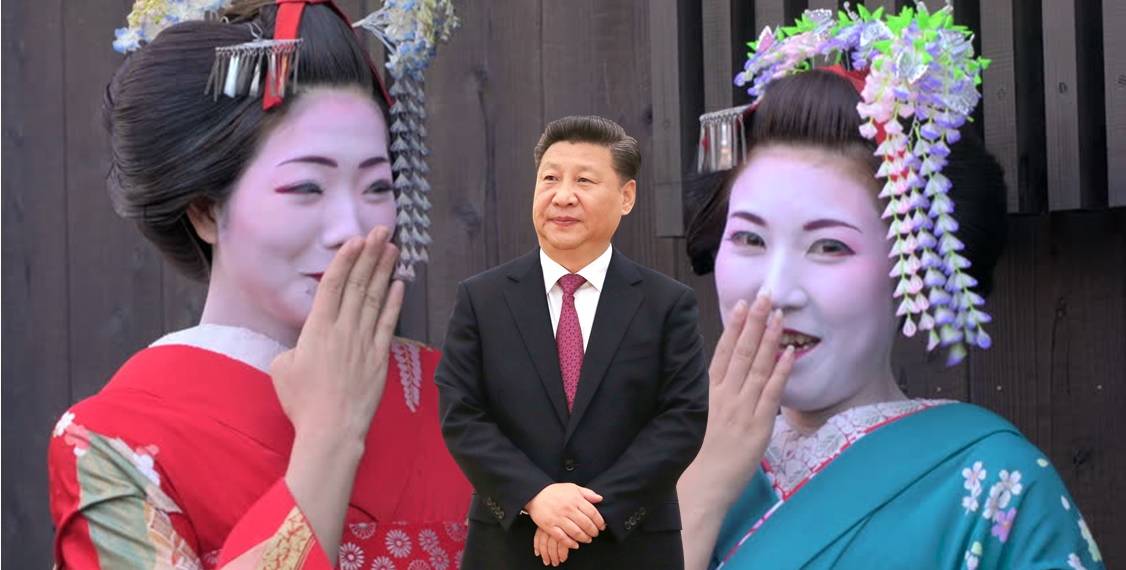In April this year, Chinese President Xi Jinping was supposed to go to Japan on an official visit. He was expected to hold talks on a range of issues including border disputes, trade, investment, and security of the region. However, before Xi Jinping could set foot in Tokyo, Coronavirus struck China and the visit was postponed.
Now, as things begin to go back to normal in China and Japan, Xi Jinping is looking for a new schedule to take off for the official visit to the eastern neighbor. However, Japan does not seem so keen to welcome the Chinese leader.
The legislators of the ruling Liberal Democratic Party have urged the Abe government to “reconsider” Chinese President’s state visit and drew up a draft resolution for the same. Two groups from ruling party submitted resolution to Chief Cabinet Secretary Yoshihide Suga, in which they urged the government to “carefully reconsider” the visit by Chinese President and highlighted China’s human rights records; assertiveness around Japan’s Senkaku Islands; and imposition of National Security Law in Hong Kong.
Another draft resolution, brought by legislators for decrying National Security Law imposed on Hong Kong, reads, “We cannot just stand by and watch. We voice our strong condemnation (of the law). We cannot help but doubt whether fundamental values such as freedom, human rights and democracy will be upheld” in Hong Kong.
The resolution by LDP’s foreign affairs division and Research Commission on Foreign Affairs shows that the people responsible for Japan’s foreign affairs policy are not interested in welcoming Xi Jinping, and set to strongly oppose attack on Hong Kong’s autonomy. “Senior members of the Liberal Democratic Party’s two committees on foreign affairs drew up a draft resolution decrying the law, which took effect Tuesday and was quickly used to arrest protestors. Prime Minister Shinzo Abe leads the party,” reported Japan’s premier daily Kyodo News.
It was a well-known fact that Japan was not keen on inviting Xi Jinping, but the LDP went ahead with the resolution. It was done intentionally to send a stern message to China and humiliate it on a global level.
Since the outbreak of Coronavirus, the global order has changed dramatically. Before the pandemic, China was the second most powerful nation with many allies and well-wishers across the world. But, as countries became aware of the fact that the Chinese government was complicit in bringing the worst public health crisis in centuries, Communist-ruled China has been left with very friends and fewer allies.
Additionally, the relationship of China with neighboring countries is getting worse due to its muscle-flexing and expansionist attitude amid the pandemic. Xi Jinping is now untouchable for any head of state, given the anger of common people against the Chinese government.
Also, any country which is seen as allying or being soft toward China risks facing the wrath of American president Donald Trump, as was seen in the case of Germany when the Trump administration called off 25 percent of American troops stationed in Germany, a key NATO ally, as German Chancellor Angela Merkel was seen cozying up to Xi Jinping.
Therefore, Abe, who will face parliamentary election next year, wants to avoid being seen on stage with Xi Jinping anytime soon. It seems like in order to make sure that Jinping cancels the visit; the Shinzo Abe government is doing everything to irk China. Japan started with a $2.2 billion plan to pay Japanese companies based in China to move out; the ruling party politicians have brought resolutions to cancel Xi’s visit as well as decry the newly imposed National Security Law.








